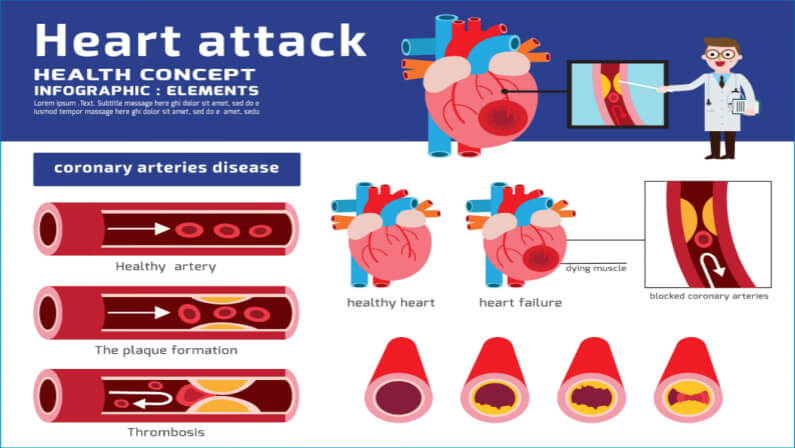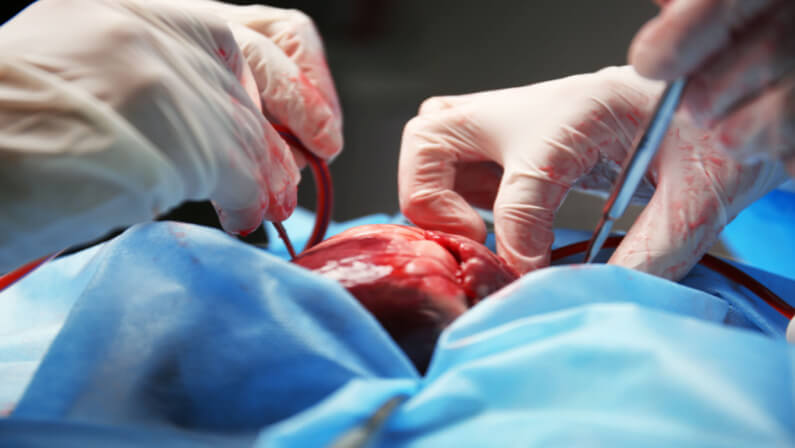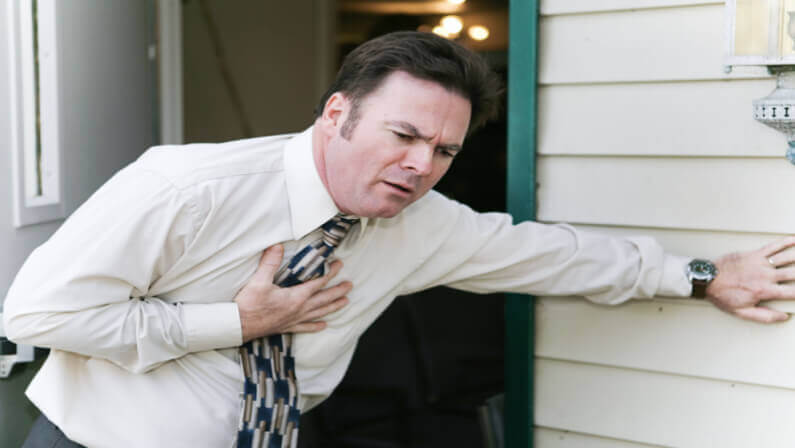A heart attack happens abruptly and can be life-threatening.
Despite its seemingly surprising occurrence, a heart attack can show warning signs that are mild to moderate before it turns into an emergency.
It is crucial that you must spot the symptoms early on to prevent their effects from worsening.
This article discusses this medical emergency and how long can heart attack symptoms last.
What Is a Heart Attack?
A heart attack, also called a myocardial infarction, is a severe medical condition when the heart’s muscles fail to get enough blood supply from the body.
This complication occurs due to fat build-up that blocks the arteries, preventing a smooth blood flow.
Heart attack affects approximately 1.2 million Americans annually, with over 80 000 of them dying from it.
What is more alarming is that about 50 percent of them have shown warning signs of a heart attack but neglected them.
This means that thousands of lives could have been saved had an initial treatment been performed before the emergency.
Symptoms of Heart Attack?

Heart attacks can display symptoms before it transpires. They can show slight discomfort and pain, which needs to be addressed immediately.
The following are the most common telling signs of a possible heart attack:
- Chest pain. Squeezing pain in the chest that lasts for several minutes. The throbbing pain tends to come and go.
- Heart palpitations. Fast beating of the heart, which feels like the heart is skipping a beat.
- Shortness of breath. Gasping for air and taking deep, difficult breaths that usually strike before the attack.
- Upper body discomfort. Severe pain from the chest to other higher portions of the body, such as the neck, arms, back, and shoulders. The pain may also reach the jaw and teeth.
- Abdominal pain. Stomach pain that feels like heartburn and goes down to the lower body.
- Lightheadedness. Dizziness may result in fainting or loss of consciousness.
- Sweating. Excessive cold sweating.
- Anxiety. Panic attack and unexplained stress.
Although heart attack is common among men and women, women usually have other unnoticed signs.
The common symptoms among women are:
- Dizziness
- Back pain
- Vomiting
- Abdominal pressure
- Unusual fatigue
All these symptoms may last for a couple of minutes or up to several hours before a potential heart attack.
These signs are already a medical emergency, and it needs immediate attention.
If you have any of these symptoms, go to Aether Health – Kingwood ER for urgent medical care.
Heart Attack Risk Factors
Heart attack can strike anyone, but it commonly happens among a particular type of population with the following risk factors:
- High blood pressure. High blood pressure can destroy the arteries, making them prone to blood flow failure.
- High cholesterol levels. High cholesterol levels can cause fat build-up along the arteries connecting to the heart.
- Diabetes. Diabetes increases the risk of high blood pressure and high cholesterol levels.
- Overweight and obesity. Excessive weight requires pressure in the blood flow, making smooth blood flow more difficult.
- Smoking. Nicotine can cause blood pressure levels to higher, which can lead to a heart attack and stroke.
- Stress. Chronic stress can increase the level of high blood pressure.
- Physical inactivity. A sedentary lifestyle may cause fatty build-up in the arteries.
What Happens in Your Body During a Heart Attack?

From the outside, a person experiencing a heart attack may show signs of squeezing pain in the chest area. Some describe it as an elephant sitting on the chest, causing the person to have difficulty breathing.
Internally, what exactly happens in the heart is that it does not receive enough blood supply and oxygen because of a fat blockage in the artery.
Heart Attack Diagnosis
Upon heart attack diagnosis, your physician will conduct a physical examination on you, including a series of questions about your existing medical condition, medications, and family’s medical history.
Your physician may also require the following tests to confirm your heart’s condition:
- Blood tests. A cardiac troponin test inspects the presence of troponin in the blood, a type of protein released into the bloodstream when a damaged heart muscle is damaged.
- Echocardiogram (“echo”). A test that checks your heart’s chambers and valves. It also detects heart abnormalities such as heart murmurs, inflammation, and damage to heart muscles.
- Electrocardiogram (ECG). A painless test that detects the heart’s electroactivity. It also inspects the heart for heart attacks and heart rhythm complications.
- Chest X-ray. An imaging test that looks into chest injury and shortness of breath caused by a heart emergency.
- Cardiac catheterization (angiogram). A procedure that helps carry out treatment procedures concerning blood supply blockage.
- Cardiac computerized tomography (CT) scan. An imaging procedure that detects plaque in the coronary arteries and presents a more details structure of the heart’s condition.
- Cardiac magnetic resonance imaging (MRI). A test that shows a detailed image of the heart and points out any damage in the organ.
You must seek medical attention the moment a slight symptom occurs to decrease the risk of having a heart attack.
Aether Health – Kingwood ER has equipped with CLIA & COLA Certified on-site diagnostic and laboratory service facilities should your physician require tests for heart attack diagnosis.
We provide fast and accurate results which help your emergency doctor come up with personalized treatment for your condition. Call us to learn more about our diagnostic facility.
Heart Attack Complications
A heart attack may cause several complications if not treated early. The National Health Service reveals that some people suffering from a heart attack die of complications even before they reach the emergency room.
Others, meanwhile, die within the first month after they are diagnosed with a heart attack.
Some complications you need to watch out for include the following:
- Arrhythmias. Irregular heartbeats develop when there is faulty signaling in the electric signals of the heart.
- Cardiogenic shock. Damage to the heart muscle is caused by failure to pump enough blood and oxygen supply to the brain and other organs of the body.
- Heart failure. A weakened heart can no longer pump blood efficiently due to damaged muscles and plaque build-up.
Our emergency doctors at Aether Health – Kingwood ER will carefully look into your condition before allowing you to head home.
Depending on your doctor’s assessments, you may be advised for hospital admission if the need arises. Contact us to know more about our emergency room services in Kingwood, Texas.
How To Treat A Heart Attack
The treatment of heart attack varies depending on the person’s health condition.
When you head to the emergency room for immediate heart attack treatment, emergency doctors may give you any of the following:
- Aspirin. Prevents blood clots.
- Nitroglycerin. Improves blood flow.
- Oxygen therapy. Increases levels of oxygen.
- Treatment for chest pain. Reduces pain and discomfort.
Again, these treatments depend on your condition. Your doctors shall look into your current medications and lab test results to devise a treatment plan.
Surgery

The following are the surgery operations that can be done:
- Cardiac catheterization. A procedure that uses a thin and flexible tube (catheter) inserted through the blood vessel. This is used to conduct specific treatment methods or diagnosed heart conditions like blocked arteries and abnormal heartbeats.
- Bypass surgery. A surgery that helps restore the blood flow to the heart. It treats coronary art disease by redirecting the blood flow around the blockage.
- Stent placement. A minimally invasive method that uses a stent or a mesh made of either metal, silicone, or fabric.
How to Prevent a Heart Attack
The most effective way to avoid heart attack and its complications are to shift to a healthier lifestyle. With a healthy way of living, you can lessen the risk of having high blood pressure and high cholesterol levels, which trigger fat build-up in your arteries.
Some of the preventive methods you may have to focus on are:
- Maintain an active lifestyle. You lower your blood pressure level by engaging in physical activities such as sports, jogging, and swimming.
- Eat healthily. Choose healthier food options such as fruits and vegetables and less consumption of food that are high in fat and cholesterol.
- Limit excessive alcohol intake. Men should only consume two glasses or less of alcoholic beverages, and one drink of women daily.
- Maintain a healthy weight. Being overweight and obese can trigger high blood. Having the right weight lowers your risks of severe conditions such as heart attack.
- Stop smoking. Nicotine can cause blood to thicken, which is harmful to smooth blood flow.
- Manage stress. Stress contributes to an increase in blood pressure. Manage stress by doing recreational activities that boost your overall wellness.
- Manage medical conditions. Ensure that you take your medications properly for any existing ailments such as diabetes and hypertension and follow your doctors advise on the right management and treatment.
Emergency room for heart attack

A heart attack can be a life-and-death situation that needs to get immediate medical attention. If your symptoms have been occurring for hours already, you should not wait any longer and seek medical help.
Aether Health – Kingwood ER is a trusted full-service facility for medical emergencies in Kingwood, Texas, and its neighboring cities. With Aether Health – Kingwood ER, you are well taken care of by the best emergency team in the city.
Our emergency doctors are ready to give you the urgent treatment you need to prevent heart attacks from developing complications.
We also have an on-site diagnosis and laboratory services facility open 24/7 that can attend to the urgent requests of our emergency doctors.
For heart attack warning signs, head to Aether Health – Kingwood ER immediately and get the treatment you need. Contact us to know more about out emergency room services.




